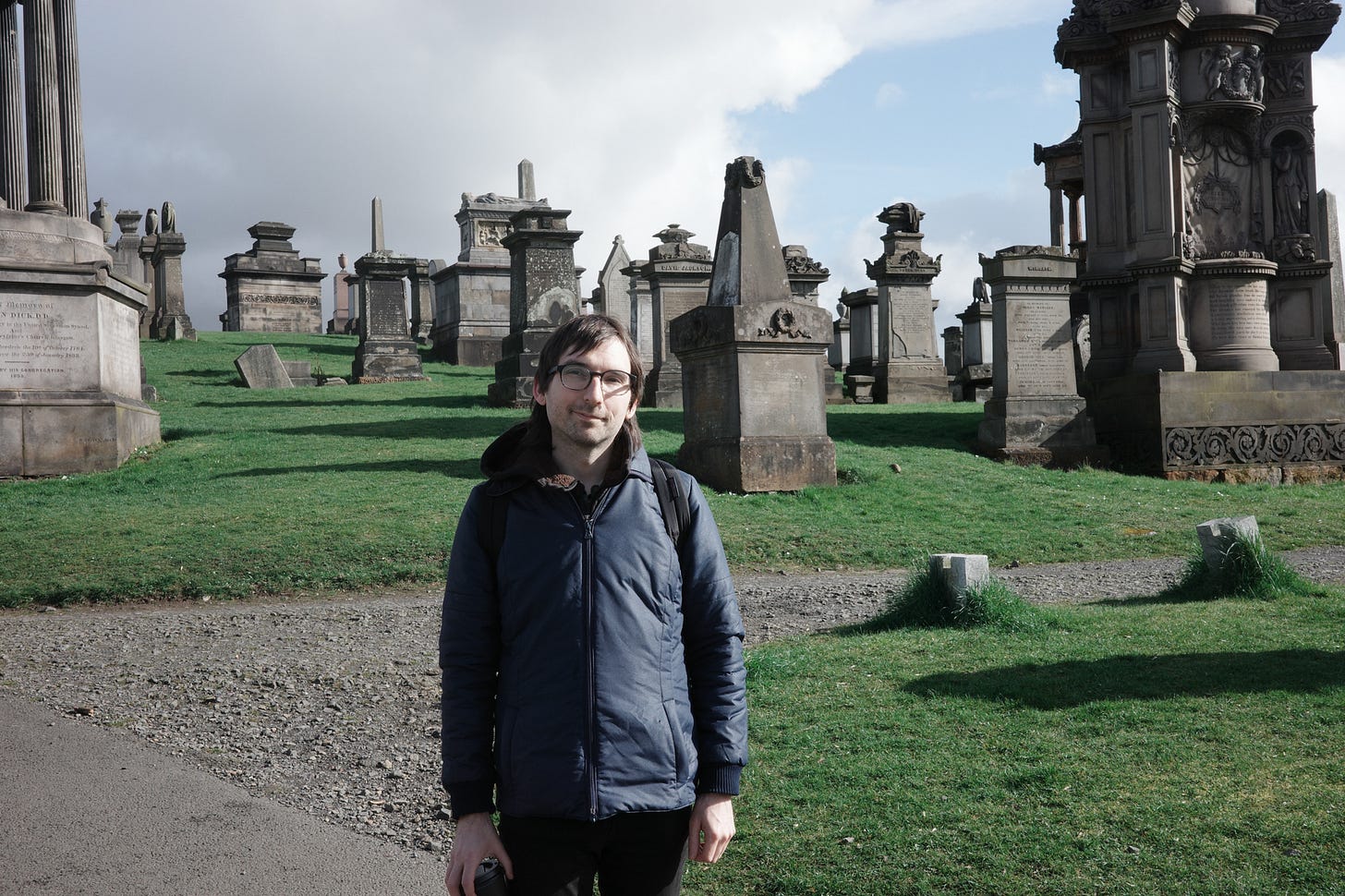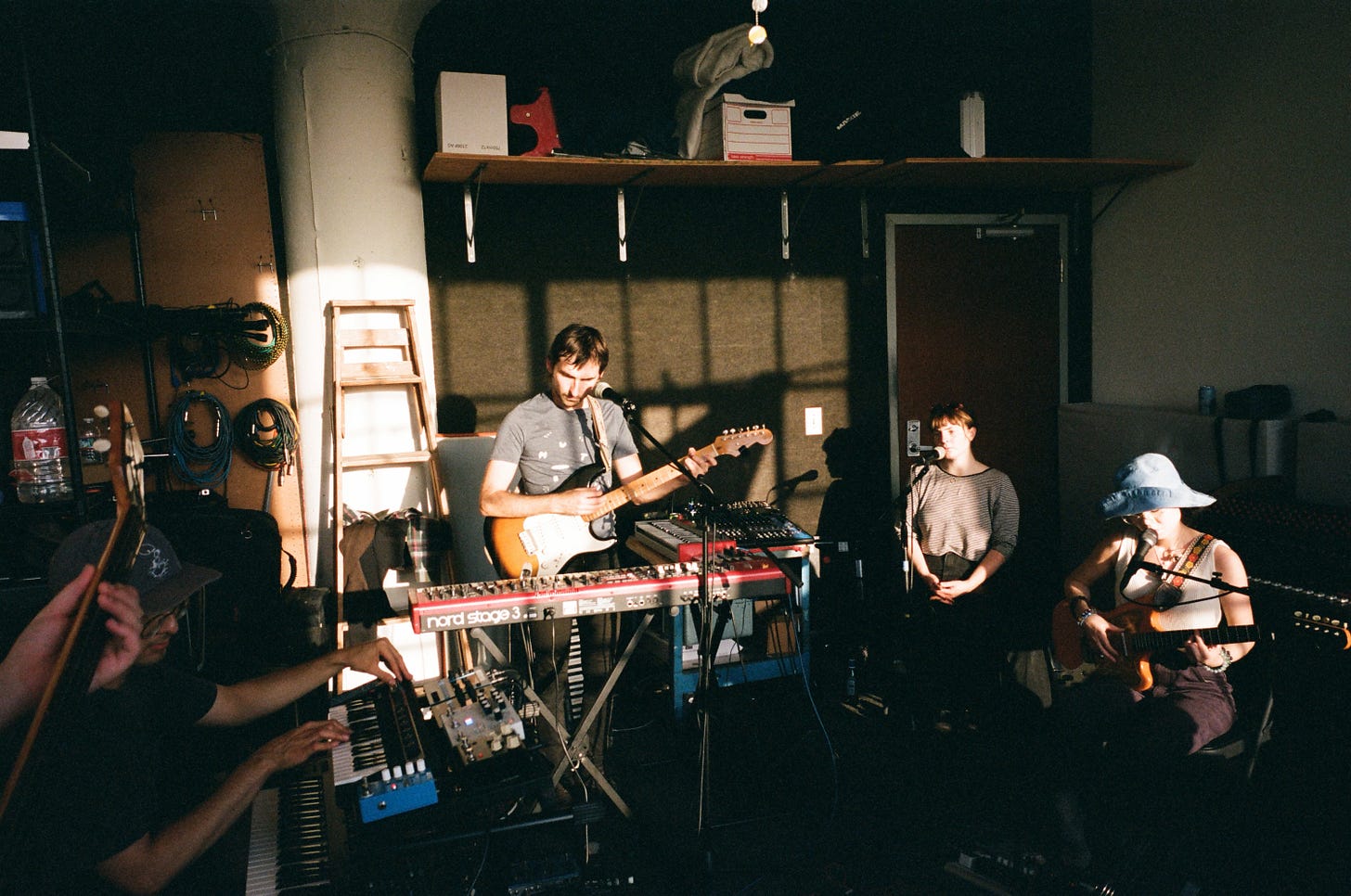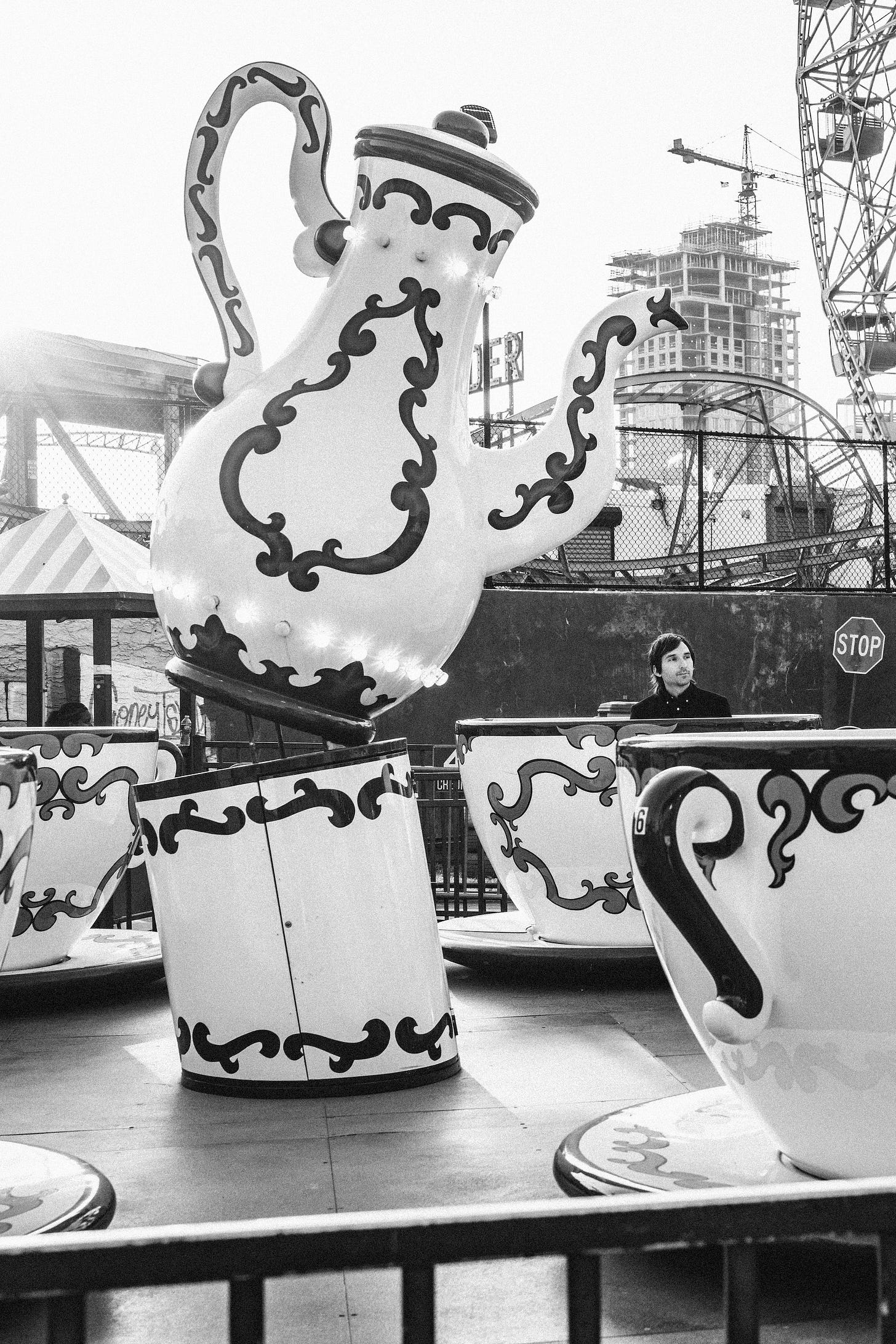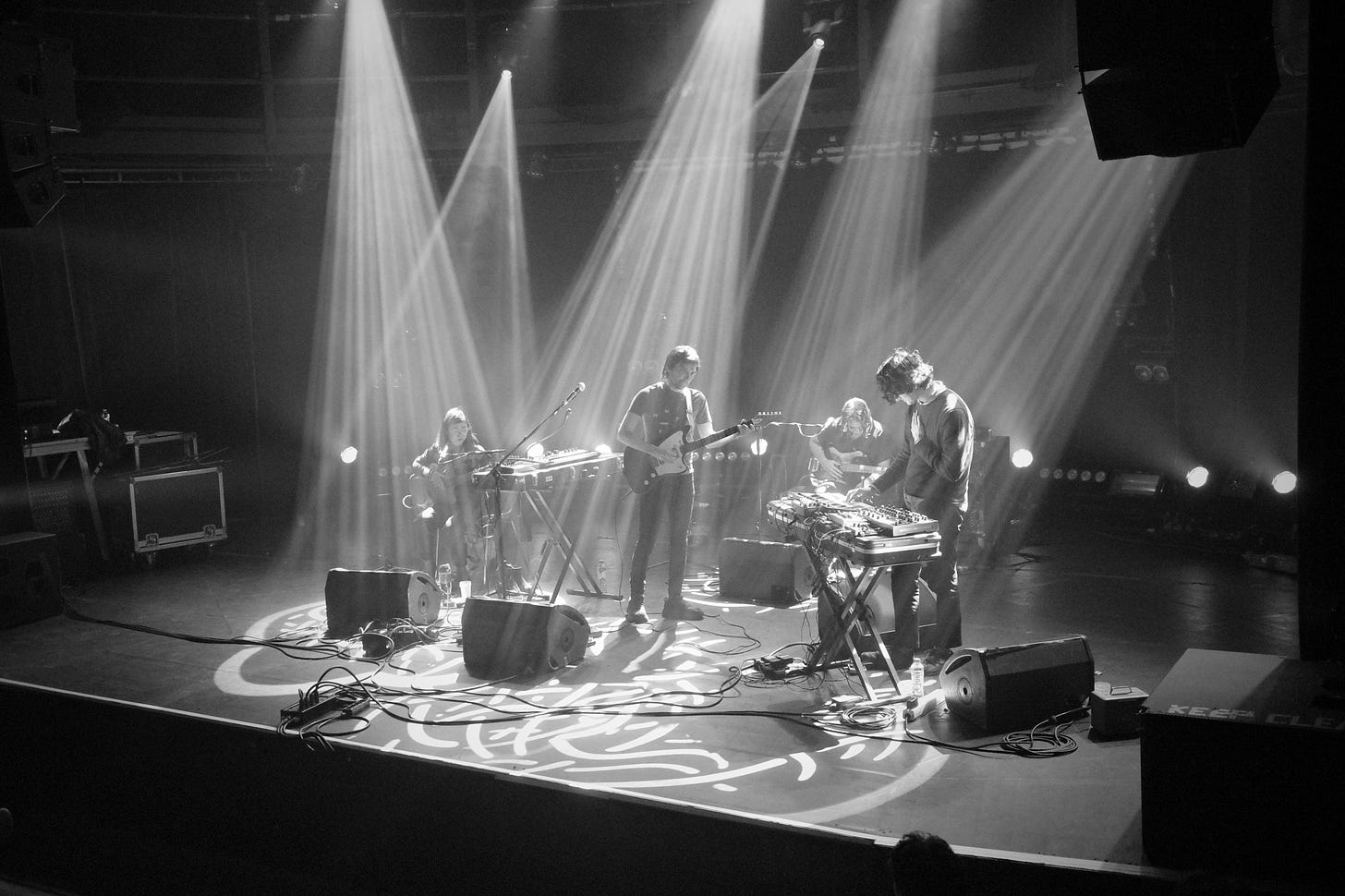Songwriter Jordan Lee Embraces Impermanence
"Every second of our lives there is gain and loss on all sorts of levels- cellular, thought patterns, even just the flow of breathing"
1. How have grief and loss impacted your songwriting process?
It was the sudden and traumatic loss of my brother as a young teen that gave me the compulsion to explore writing music for the first time. My inner world got re-arranged and my daily thoughts were no longer on stable ground. Playing the piano went from a chore to a deep exploration, a way to gently interface with tangled, locked up feelings in a safe, abstract context. I certainly wasn’t doing this on purpose, I was just a kid doing what felt good, but I’m grateful to have discovered those tools which I’ve continued to use the rest of my life.
Fast forward fifteen years and my first proper album, Love’s Crushing Diamond, was a culmination of the inward looking and mending from that tragedy and the addictions that stalked my family long afterwards. I was trying to learn to not feel helpless when confronted by the suffering of loved ones. I was especially concerned with how to not succumb to hopelessness and nihilism without resorting to a hollow “everything will be alright”.
As I started writing that record the lyrics were quite bleak but with each revision little glimmers of insight made surprise appearances. I started writing about the beauty that always arises, even just for a second, alongside suffering. I started honing in on the impermanent, transient nature of all moments and matter, which felt really freeing at the time. It probably comes as no surprise that I eventually found my way to Buddhism, haha.
2. As a listener of your music I am always amazed at how seamlessly you connect the personal experience of loss with the universal experience of loss. How do you see your personal narrative tied to the collective?
After the modest success of Love’s Crushing Diamond it took a couple albums to develop what I was trying to say. I wanted to expand the scope of my lyrics beyond personal but writing about the external world can be trickier than one’s own felt experience. I found myself trying to hone my politics of the collective, to study ecology more closely, to brush up on people’s histories to put our times in clearer context. But even today as I go down these research holes, the songs don’t feel genuine without it synthesizing with my own experience.
I think I scratched the surface of the personal/universal nonduality with Thunder Follows The Light, which was written during the stomach-churning early moments of first Trump presidency, but Growing at the Edges was the album where I was more able to articulate the echoes and porousness of inner and outer worlds. It started to occur to me that with climate change there was no way forward without a deep loss of what we are used to. Action or the failure to act will both lead to our way of life dramatically changing. It is naturally a scary prospect but I found the perspective that things will always change as a baseline way to not feel anxious every day.
It goes back to impermanence, we often think of “loss” as something negative and unpleasant. But every second of our lives there is gain and loss on all sorts of levels- cellular, thought patterns, even just the flow of breathing. With the songs on Growing at the Edges I started seeing connections between things like controlled burns of the California forests to protect against forest fires with our own need to let go of flawed, destructive perspectives and opinions.
3. Are there any specific songs that you wrote that are a reflection of your grief process?
Strong Swimmer, the final song off of Love’s Crushing Diamond was a very cathartic song for me to write. It contains my grief but also has a sense of acceptance of the river of time’s ever-present flow. We can constantly train ourselves and do all we can to exercise control over our lives but the river is always flowing quite indifferently to many of our efforts. This is a tricky idea, I’m not saying our lives have no meaning or that we shouldn’t try. In fact, this idea has helped me be more present and able to act day to day. I’m reminded of a Zen exercise where you imagine sitting next to a river and watching each thought and emotion drift by without attaching to it. Strong Swimmer was an early way of trying to articulate that before I had words for it.
More recently, Wasteland Companions from Growing at the Edges was a different kind of grief mixture. It was inspired by a trip to LA where I took a hike with a friend to see a favorite vista without knowing until we got to the top that most of the trees in the valley had burnt down from a forest fire. This was years ago before forest fires were as rampant as they are now. I was so disturbed that a whole forest could disappear. As part of processing this surreal loss, I was pulled back to the present, back to imagining everything around us as, yes, impermanent but also miraculous in its ordinary existence. The co-arising of those two ideas is probably the biggest part of my music project.
4. What special qualities do you think that music has to help us process complex emotions around death?
I think of writing music as a creative flow. As the writer unblocks, music will naturally arise and hopefully connect with people. Also as part of this flow, I think it pulls up bits from the unconscious to integrate back into our conscious selves. I write albums very slowly but I find the process itself to be transformative. Many times I return to a past work and find new or updated meanings in some of the lyrics that, at the time, I wasn’t quite sure about but trusted my intuition to include.
The connection with others and the dredging up of tangled or hidden thought patterns is a powerful way to process. I find that musical exploration on an instrument feels nonlinear in a way where I can let feelings arise and dissipate without committing them to words and forcing them into a conceptual framework. Other than art, there aren’t many ways I know of to do this. With this sort of “play” during improvised music we can let go of the word “should” that pops up over and over again during grief and let things simply “be” in a nonjudgemental space. It is in that space where a lot of healing has happened in my life.
Mutual Benefit is the sprawling chamber folk project of Brooklyn songwriter Jordan Lee. For over a decade, he has crafted pop experiments that are uniquely comforting but willing to stare down life’s more difficult existential quandaries. His lush songwriting is often pieced together over several years, inspired by the hellos and goodbyes and blurred landscapes of life in flux. As a writer for The New Yorker heard it, “Bells and flutes and strings blend with basic rock instruments; vocal arrangements pulse and flow, and the result shimmies beyond the fence of the familiar.”
Sound & Memory, founded by violinist/composer and certified Death Doula Concetta Abbate, is a music and arts memorial service that provides personalized memorial offerings including live music, original music compositions, recordings and workshops. We explore innovative ways to incorporate music into contemporary rituals for both grief and death, as tradition evolves over time. Our belief is that music has the power to strengthen communities facing the loss of a loved one by evoking the legacy of that person's life.
⭐️ Give the gift of music to the bereaved
⭐️ Support death positive public programs delivered through music
⭐️ Sponsor a person in need of death doula support (end of life planning and legacy building)
Make a TAX DEDUCTIBLE donation to Sound and Memory






